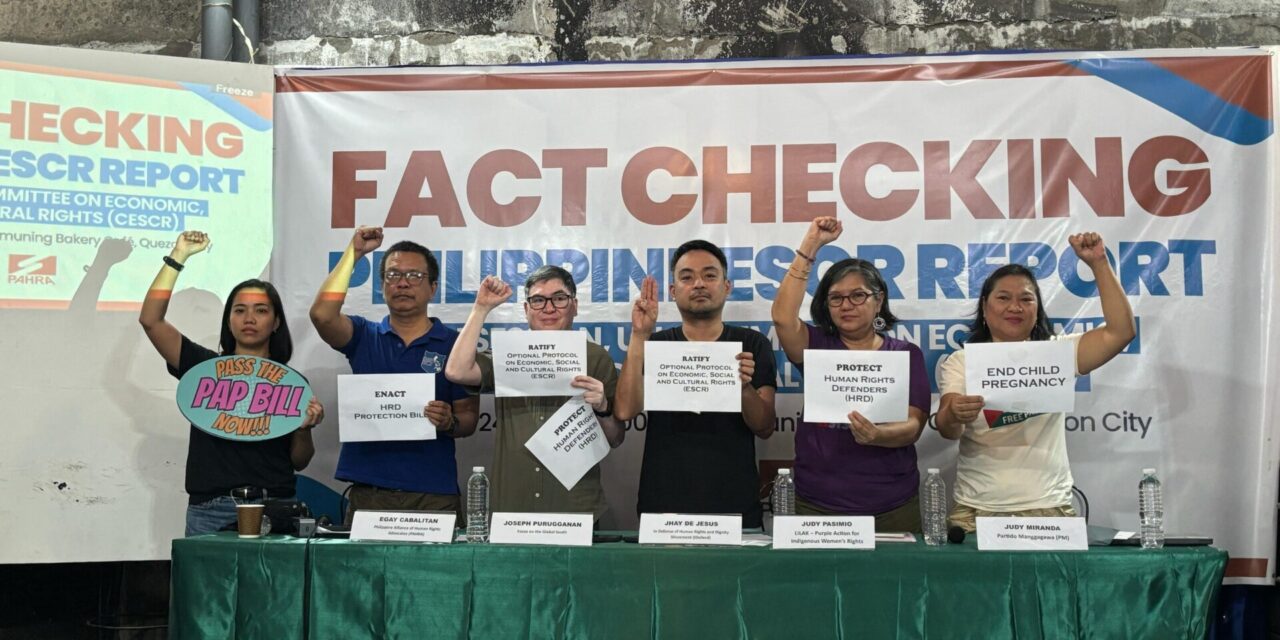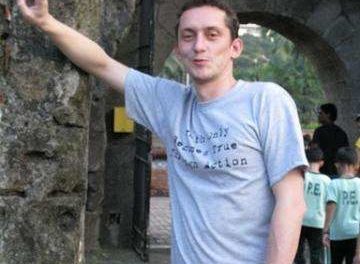The CSO delegation led by In Defense of Human Rights and Dignity Movement (IDEFEND) and Philippine Alliance of Human Rights Advocates (PAHRA) expressed that in the midst of the multiple crises disproportionately impacting the poor and marginalized in the country, and considering the amount of available resources at its disposal, it is clear that the government is failing to fulfill its Economic Social and Cultural Rights (ESCR) obligations to its own people.
The United Nations Committee on ESCR (CESCR) raised important questions addressed to the Philippine government on the situation of issues that are crucial in moving towards progressive realization of human rights of the Filipino people. However, while other countries who are members of the UN committee expressed serious concern to the Philippine government, iDEFEND and PAHRA assert that the response of the Philippine government do not reflect the realities on the ground. The numbers and data mentioned are mere compliance to its international obligations.
According to Jhay de Jesus, IDEFEND National Coordinator, the perfunctory way of reporting as if it were an oral exam in the classroom, just mouthing off of pesos spent and existing laws and policies without serious evaluation of the real impact of those budgets and numbers, contains no concrete steps towards accountability and social justice.
Joseph Purugganan of Focus on the Global South stressed that the Philippine government failed to substantively address the critical issues raised by the UN Committee on ESCR.
“On many occasions, its responses were filled with half truths and outright mischaracterization of the real situation. Deny, deceive, and distort seemed to be the mantra of the government. But the committee members, we feel, saw through this, and we expect a long list of recommendations in the concluding observations,” said Purugganan.
“Looking at the members of the delegation, many of whom are carryover from the Duterte administration, it’s not surprising that while the tone has mellowed a bit and become more diplomatic, the narrative on some issues – like on red tagging, and attacks against HRDs- remain the same,” Purugganan added.
Neca Reyes, of LILAK Purple Action for Indigenous Women’s Rights, lauded the UN Committee for providing a comprehensive look at the situation of indigenous peoples and in the continuing struggle of non-Moro Indigenous peoples in BARMM. She said that as the struggle for land continues, they often are met with violence.
“The rhetoric of the government claiming that domestic mechanisms are working and there are no attacks against “legitimate” environmental rights defenders, and are working with “legitimate” civil society organizations remains the same. This mindset and framework from Duterte and acceded by Marcos Jr. is really problematic. Who decides who is legitimate or not then?” said Reyes.
The Philippines has consistently ranked as the most dangerous country in the world for land and environmental defenders.
Edgar Cabalitan, PAHRA Secretary-General, emphasized that history is repeating itself, as the current administration continues to neglect the people’s economic, social, and cultural rights.
“On the eve of the 39th anniversary of the EDSA People Power Revolution, we are once again witnessing history repeat itself. Another Marcos is failing the Filipino people by prioritizing political interests over essential social services in the 2025 budget. This misallocation of resources deepens inequality and leaves the most vulnerable behind—just as it did decades ago,” said Cabalitan.
iDEFEND and PAHRA commit to continue monitoring the situation of ESCR, push the envelope on social justice, and stress the political polarization where the people’s voices remain marginalized if not silenced.
Contact Person/s:
Jhay de Jesus, In Defense of Human Rights and Dignity Movement (IDEFEND), 09561308334
Egay Cabalitan, Philippine Alliance of Human Rights Advocates (PAHRA) – 09171037822










